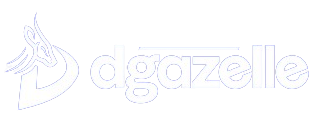Social media is everywhere. We use it to connect with friends, stay updated on news, and even grow businesses. As a social media expert, I’ve seen firsthand how platforms like Instagram, Facebook, and TikTok have transformed communication and marketing. While it’s true that social media offers many benefits, the truth is, there’s a darker side that many users don’t recognize. Social media is quietly influencing our lives in ways that can harm our mental well-being, privacy, and even relationships.
Let’s pull back the curtain and explore 10 ways social media is secretly shaping your life—and how to be mindful of its impact.
1. The Illusion of Connection
Social media gives the appearance that we are more connected than ever, but is that really the case? With hundreds or even thousands of “friends” or “followers,” it’s easy to feel like we have a strong support system. However, these digital connections often lack depth. A study from the University of Pennsylvania found that heavy social media users report increased loneliness and isolation.
The constant interaction through likes and comments can’t replace genuine, face-to-face relationships. It’s essential to differentiate between real-world bonds and the shallow connections that social platforms promote.
2. Social Media Addiction
Have you ever found yourself mindlessly scrolling for hours? This isn’t by accident—social media platforms are designed to keep you hooked. Features like infinite scroll, push notifications, and “likes” trigger dopamine releases in the brain, creating a cycle of reward and dependency.
According to a 2019 study by the Pew Research Center, 70% of teens report checking social media multiple times a day. This addiction not only affects attention spans but also distracts users from being fully present in their daily lives.
3. The Pressure to Maintain a Perfect Image
Social media often fosters unrealistic standards that can significantly affect self-esteem and mental health. Making everyone’s life looks picture-perfect. From perfectly styled homes to flawless selfies, there’s pressure to curate the “ideal” version of ourselves for public display. This constant need for validation can lead to low self-esteem and body image issues, especially among younger users.
Users may feel they must present an idealized version of their lives, leading to extensive curation of posts that highlight beauty, success, and happiness. As a result, this can create pressure not only to maintain that façade but also to compete with others’.
The introduction of filters and augmented reality features has further complicated body image issues, making it harder to differentiate between reality and fantasy, and leading to potential dissatisfaction with one’s own appearance. Instagram filters and augmented reality (AR) tools are blurring the lines between what’s real and what’s enhanced, leaving users feeling like their authentic selves aren’t good enough.
4. Amplifying Anxiety and FOMO
Scrolling through friends’ photos can quickly turn into an anxiety-inducing experience. Witnessing others’ carefully curated “highlight reels” can lead to a common phenomenon known as the fear of missing out (FOMO). A byproduct of social media’s constant stream of highlights from friends, celebrities, and influencers.
Increased time on social media directly correlates with higher levels of anxiety, depression, and FOMO. Instead of being a source of inspiration, social media can become a cause of stress. Adolescents are particularly vulnerable, with research suggesting that higher engagement correlates with worsening mental health statistics among teenagers. This highlights the importance of awareness surrounding the potential impact of online activities on mental well-being.
5. The Spread of Misinformation
Social media platforms have become notorious for spreading misinformation and conspiracy theories making it hard to discern factual information from conspiracy theories or misleading content. With algorithms designed to prioritize engagement, sensationalized and misleading content often gets more visibility than factual information. This has serious consequences for public trust, especially in areas like politics and health.
The Cambridge Analytica scandal is a stark example of how user data can be manipulated to spread fake news and influence elections. It serves as a cautionary tale of how social media can shape public opinion and democracy, raising concerns about the trustworthiness of what we consume online.
6. The Rise of Echo Chambers
Social media algorithms feed users content that aligns with their current beliefs, creating digital echo chambers. Instead of being exposed to diverse viewpoints, users are often trapped in bubbles where their ideas are constantly reinforced.
This phenomenon contributes to social polarization, as people become more entrenched in their perspectives and less tolerant of differing opinions. Studies shows that social media significantly amplifies political divides, deepening ideological differences.
7. Data Privacy Concerns
One of the most overlooked dangers of social media is its impact on privacy. Platforms collect massive amounts of personal data—location, browsing habits, interests—all for targeted advertising. What’s worse, users often have little understanding of how their data is being used, managed and protected..
The Facebook-Cambridge Analytica scandal highlighted just how vulnerable user data can be. Without proper safeguards, users are at risk of data breaches, identity theft, and unauthorized surveillance.
8. Impact on Focus and Productivity
It’s no secret that social media can be a huge distraction. Notifications, messages, and endless scrolling break focus and reduce productivity. People spend an average of 3 hours and 15 minutes per day on their phones, with social media apps being the biggest culprits.
This constant need for digital engagement pulls attention away from important tasks, reducing work efficiency and contributing to procrastination.
It is essential for users to find ways to manage their social media use effectively. Strategies such as setting designated times for checking social media, muting notifications, or even taking periodic breaks can help improve focus and overall productivity.
9. The Hidden Emotional Toll on Creators
While influencers and content creators enjoy the spotlight, there’s a darker side to their success. Constantly creating content to meet audience demands leads to burnout, stress, and emotional exhaustion. The pressure to stay relevant and maintain engagement can take a serious toll on mental health.
Stories of influencer like Elle Mills burnout highlight this reality, where individuals can find themselves overwhelmed by the need to meet audience expectations, sometimes resulting in a complete withdrawal from social media altogether
Conclusion
Social media is a powerful tool, but it comes with a hidden cost. From social comparison and misinformation to addiction and privacy concerns, it’s shaping our lives in ways we might not even realize. While it’s important to stay connected and leverage the benefits of social media, we also need to be mindful of its dark side.
Now that you know the hidden ways social media is shaping your life, it’s time to take control of your digital experience. As a social media expert, I recommend setting boundaries to minimize the negative effects. Limit screen time, avoid mindless scrolling, and use social media with intention—whether it’s building connections, growing your brand, or staying informed.
GET IN TOUCH
Ready to take control of your social media experience and use it to your advantage? Let’s get started by scheduling a free, 15-minute strategy call with our Social Media Manager right now.








